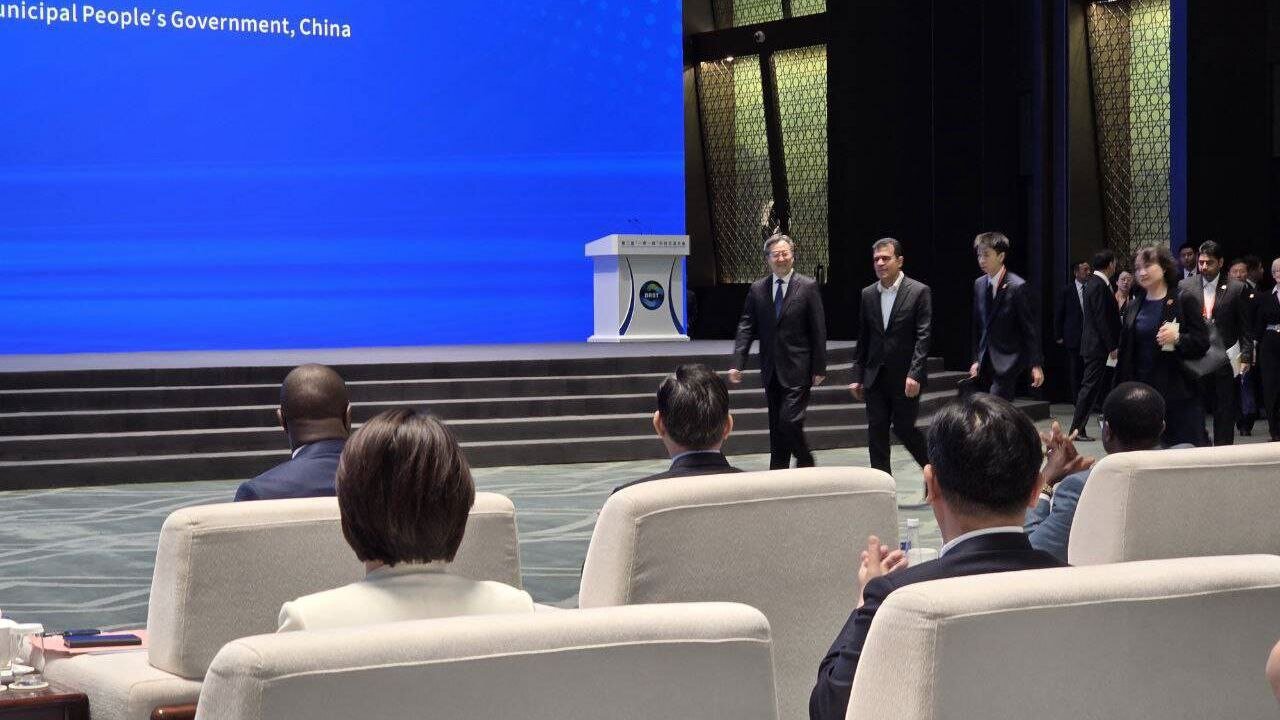Iran proposes strategic plans to enhance tech ties along Silk Road

TEHRAN – Addressing the 2nd Belt and Road Conference on Science and Technology Exchange, Hossein Afshin, the Vice President for Science, Technology, and Knowledge-Based Economy, has proposed six strategic plans to boost technological ties along the Silk Road.
The conference is taking place in Chengdu, the capital of southwest China’s Sichuan Province, from June 10 to 12.
The six proposals are based on national capacities, operational experiences, and a region-oriented perspective, IRNA reported.
The first plan focuses on the establishment of BRI (Belt and Road Initiative)-TechMatch platform to adapt affordable and indigenize technologies to the needs of developing countries.
The official also announced Iran’s readiness to launch a platform with the help of other countries to identify and exchange low-cost technologies that are climate-adaptable and suitable for the infrastructure conditions of partner countries, particularly across sectors like agriculture, health, energy, and transportation.
The establishment of a regional center in Tehran for future studies and monitoring technology for member states in the BRI was the second recommendation. In cooperation with universities and think tanks in these countries, the center will monitor developments in emerging technologies such as artificial intelligence, biotechnology, new energies, as well as quantum technology, and publish reports for decision-making.
The third suggestion involves launching a BRI LabsNet. To ensure high-quality technology exchange and provide affordable technology, Iran proposes launching a multinational network of specialized laboratories to test and evaluate equipment and technologies produced in countries of the BRI, which is a step towards enhancing mutual trust and facilitating technological trade.
Implementing a regional technological skills training program focusing on youth in countries of the BRI was the fourth presented plan. It includes designing a joint training program on technical-digital skills for youth in developing countries in cooperation with universities and online education platforms in local languages, offering practical content.
The fifth proposal concerns developing an extraterritorial infrastructure network to expand the applications of artificial intelligence in transportation along the BRI route.
It offers the implementation of a set of joint projects to launch AI-based cross-border infrastructure in the fields of transit transportation, smart logistics, and route monitoring. The plan can cover data exchange, algorithm design, and installation of sensors and analytical systems on key routes, which will increase transit security along the BRI route.
Developing a technological cooperation charter for the countries of the BRI with a focus on ethics, data governance, and fair technology transfer was the last proposal. The charter aims to collectively and voluntarily institutionalize principles such as respect for data regulations at the national level, two-way technology transfer, intellectual property protection, and sustainable technological development, so that this technological cooperation can lead to equitable development in member states.
The 2nd conference, themed ‘Building the Innovation Silk Road for Shared Development: Working Together for a Belt and Road Science and Technology Community,’ has gathered attendees from over 100 countries and international organizations.
The conference upholds the principles of extensive consultation and joint contribution for shared benefit, aiming to strengthen exchange, build consensus, deepen cooperation, and provide strong sci-tech support for high-quality Belt and Road cooperation.
It features 38 events across five categories: major events, thematic activities, special events, roundtables, and technology matchmaking sessions. Discussions cover academic exchange, industrial innovation, international mega-science projects, artificial intelligence, and Belt and Road sci-tech planning and policy coordination.
China interested in developing sci-tech ties with Iran
Ding Zhisheng, the Vice Premier of the People’s Republic of China, has voiced China's willingness to boost scientific and technological cooperation with Iran within the framework of the BRI.
Zhisheng met Afshin on the sidelines of the three-day conference.
Referring to the achieved agreements between the two countries, the Chinese official said China is willing to effectively implement the Iran-China strategic partnership and promote high-quality cooperation within the framework of the BRI. “We seek to further develop the capacity for cooperation in science and technology between the two sides to bring more tangible benefits to the people of both countries,” IRNA quoted Zhisheng as saying.
For his part, Afshin said Iran is interested in enhancing ties with China to achieve breakthroughs in major scientific and technological cooperation.
China and Iran formally defined their bilateral relations as a Comprehensive Strategic Partnership (CSP) in early 2016, when President Xi Jinping paid a visit to Iran. The strategic relationship has seen robust development since then.
Iran has demonstrated its full support for China in various issues, from those related to China’s core national interests and major international agendas proposed by China, such as the Belt and Road Initiative (BRI). China has also strongly supported Iran’s legitimate quest on many issues. China supported Iran’s legitimate position on the Joint Comprehensive Plan of Action (JCPOA), Iran’s position on women’s rights, and membership in the Shanghai Cooperation Organization (SCO) and BRICS.
MT/MG
Leave a Comment